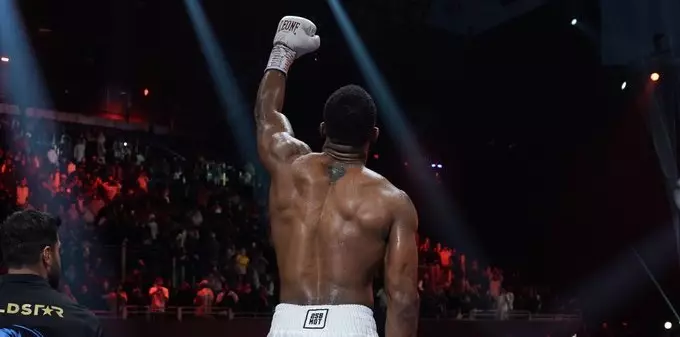The world of boxing is notorious for its intense physicality and the often harsh consequences that accompany the profession. With stories of legendary fighters defining eras through their skills and resilience, it becomes painfully evident that not all endings to their narratives are happy ones. This reality hits hardest when discussing athletes like former heavyweight champion Anthony Joshua. Following a devastating loss to Daniel Dubois, it is time for the boxing community to reflect on the professional longevity of fighters and question whether Joshua should consider stepping away from the ring for good.
Boxing, by its very nature, is a sport that can severely injure its participants. Every fighter who steps into the ring is acutely aware of the risks involved, yet we frequently see champions struggle to know when it’s time to retire. This phenomenon is not new nor rare. Many fighters, faced with the sorrow of defeat and the flickering light of their previous glories, refuse to let go of their identity as competitors, often competing beyond their prime. The sport’s nature sometimes leads to devastating repercussions that extend beyond the ring, insinuating that the fight shouldn’t end at the sound of the final bell.
Joshua’s journey up to this point has been one of remarkable achievement yet has also been mired in traumatic defeats. As he stood there in the ring after the recent match, one couldn’t help but consider the toll his career has taken on his body and mind. This latest bout was not an isolated incident; it marked one in a series of defeats that have put intense pressure on Joshua’s legacy. While he towered over many of his contemporaries during his rise to fame, the stark reality now is documented by the scars of battle etched all over his career.
Combat sports require athletes to endure considerable punishment, and boxing is steeped in this ethos. Joshua’s career has been punctuated by stunning victories and equally staggering losses. Notably, his encounters with heavyweights like Wladimir Klitschko and Andy Ruiz have left indelible marks on his record and physical well-being. The famed fight against Klitschko, despite its eventual success for Joshua, demonstrated how deeply the athlete can be pushed to his limits, with remnants of that combat likely lingering in his mind and body long after the fight has concluded.
The effects of taking repeated blows are not only physical but can also devastate a fighter’s mental state. Broken confidence, doubts about capability, and the fear of loss often create a tumultuous inner dialogue that can further affect performance in the ring. This begs the question: How much is too much? When does the solemn duty to uphold the integrity of the sport conflict with an individual’s inherent need for self-preservation and safety?
While it may be tempting for Joshua to forge ahead in the sport, there is an undeniable risk associated with prolonging his career. Much like popular figures before him, the stakes are significant. His longstanding status as a heavyweight champion has garnered unparalleled public attention, yet reiterating his commitment to his career despite mounting evidence may seem reckless. Just as fans wish to see their heroes maintain their legacies, it’s equally crucial to prioritize their long-term well-being.
It is possible that Joshua may still have the ability to recover and come back to reclaim his spot in boxing, yet the question hangs heavily: is it worth the risk? He has a wealth of accolades and memories from his championship days, and he should consider whether pursuing further bouts will add to his legacy or potentially tarnish it. Perhaps Joshua should recognize that leaving the ring is not a sign of defeat, but can instead be seen as an intelligent decision that prioritizes one’s health and future.
The boxing world has seen many juxtaposed tales of victory and defeat, and Anthony Joshua’s current circumstance underscores the importance of placing safety above the siren call of competitiveness. As he stands at a crossroads in his career, the right choice could influence the narrative of a fighter’s legacy. May he make the decision that reflects both wisdom and prudence.


Leave a Reply